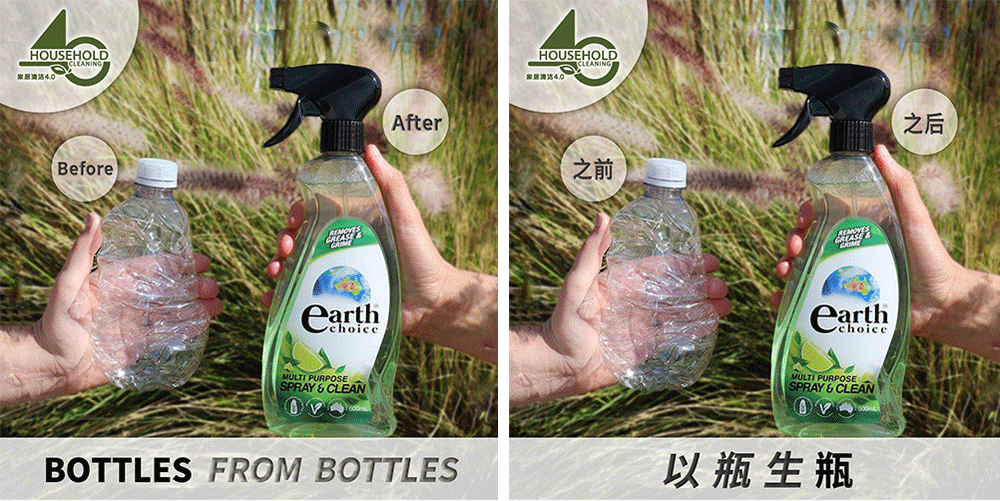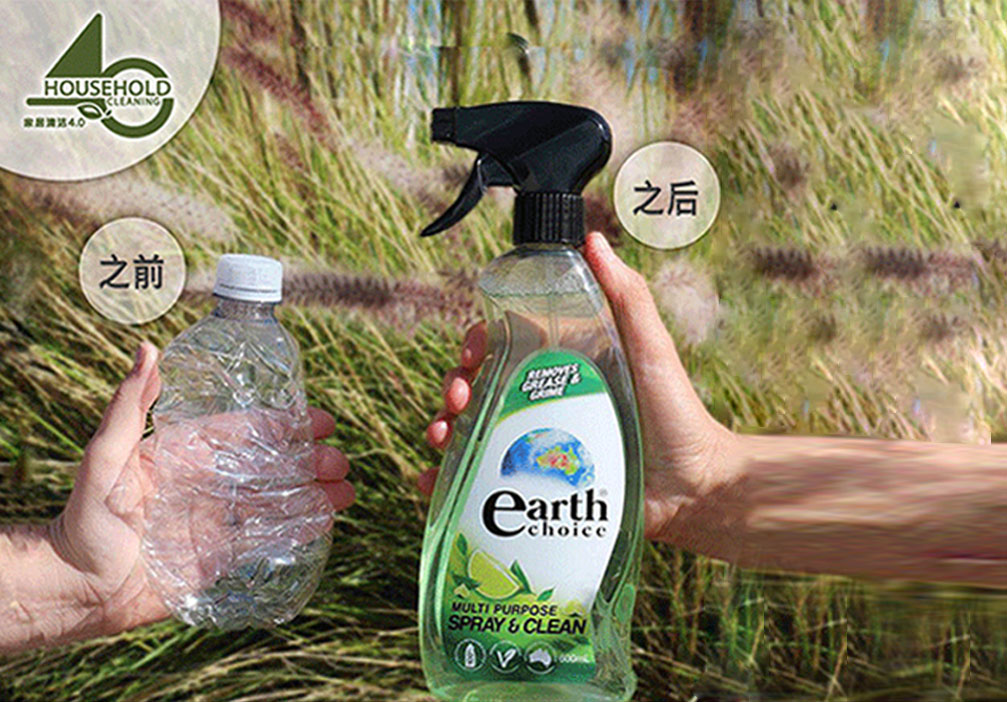The Chinese government announced that by the end of 2017, it would prohibit the import of waste plastics from domestic sources, unsorted waste paper, waste textile raw materials, vanadium slag and other solid wastes that are harmful to the environment, so as to reduce the damage to the environment.
On November 5, 2018, the first China International Import Expo ciie was held in Shanghai, and China's Internet also made a leap from "selling all over the world" to "buying all over the world".
While online shopping creates jobs and drives the economy, few people are concerned about another problem that can not be ignored: the pollution of packaging materials in disguise. After the packaging materials are discarded, they are no different from other domestic waste, which not only causes material waste, but also leads to environmental pollution. Recently, the reporter of China Environment News interviewed Zhang Maggie, head of onoya's Chinese market.
China Environment News: at present, online shopping in China is convenient and cheap. How serious is the packaging pollution?
Maggie Zhang: in 2016, China Express completed 31.28 billion pieces of business, 40.1 billion pieces in 2017 and more than 50 billion pieces in 2018. If a package uses 200 grams of packaging, the weight of the packaging will exceed 10 million tons. Less than 10% of these packaging materials are recycled, and the rest go into garbage. It will not only consume non renewable earth resources and produce carbon emissions in the production process, but also bring serious pollution to the earth and ocean. In some parts of China, express waste has accounted for about one-third of the total waste.
China Environment News: what are the usual packaging materials? How to harm the environment?
Maggie Zhang: the packing box itself is cardboard. To produce a ton of paper, 17 ten-year-old trees need to be cut down. There are also plastic bags and plastic fillers. It takes 3 tons of oil to produce a ton of plastic. Another is the adhesive tape. It is estimated that the average use of adhesive tape per express delivery in China is 0.8m. In China, the use of adhesive tape in 2018 is 40 million km, which can rotate 1000 times around the earth, and it takes nearly a century for the adhesive tape to degrade on the earth.
China Environment News: what are the current waste treatment methods of packaging materials in China? What is the processing capacity? Not handled in place?
Maggie Zhang: now the recovery rate of packaging materials is no more than 10%. The problems here include the awareness and knowledge of recycling, whether recycling is convenient, whether recycling is enforced and encouraged by laws and policies, etc. We have also seen reports of secondary pollution and health problems caused by some non-standard recycling plants in China, which shows that in terms of reprocessing and utilization of recycled products, we also need to formulate norms, strengthen supervision and improve the technical level.
China Environment News: each shopping platform has no right to force businesses to use environmentally friendly packaging. Does that mean that the platform has no responsibility for environmental protection? Who should bear this responsibility? Someone has simply calculated an account. According to the data of meituan, hungry and Baidu takeout, the average daily order volume is about 7 million. Even if only one plastic bag is used for a single takeout, according to the calculation that each plastic bag is 0.06 square meters, the total area reaches 420000 square meters, which can cover 59 football fields. This is the amount of a day. If you buy all over the world, what is the expected situation of all kinds of waste packaging materials? Have you discussed this serious problem with professionals?
Maggie Zhang: in recent one or two years, in China, people have begun to call for attention to the problem of packaging waste. Some enterprises, including Alibaba's 2020 plan, have also begun to take some measures. This is a good start. Today, when the Chinese government vigorously promotes "ecological China", I believe these problems will also be paid attention by the government to promote the environmental protection and recycling of packaging materials at the legislative and policy levels.
China Environment News: how to deal with waste packaging (incineration and landfill) in Australia? How effective is it? (do you have data on the annual packaging waste in Australia)
Maggie Zhang: Australia does not have the problem of large-scale express packaging like China, but the per capita use of plastic packaging is similar to China. In the past, like some developed countries in the world, Australia exported most of its recyclable waste to third countries for reprocessing, of which more than 70% went to China. Since 2018, the Chinese government has banned this kind of "foreign garbage" from entering China. Australia is suddenly faced with the problem of dealing with this garbage by itself. Different from other enterprises, Terry dowel, founder of natures organics, Australia's largest manufacturer of household cleaning and personal care products, began to focus on self-conscious R & D and innovation in environmental protection a long time ago. As the first enterprise in the southern hemisphere to adopt PET material and use plants as raw materials, now natures organics uses 100% recycled plastics to produce packaging bottles for all its products, and puts forward the slogan of "bottles from bolts" and "bottles from bottles", which is also one of the core concepts of home cleaning 4.0. In addition, from the large to the packing box and the small to the gasket in the bottle cap, the minimum consumption is achieved on the basis of in-depth research and test.
For another example, the plastic dyed by adding color masterbatch in the material is difficult to be reused for many times. Nature organics advocates the technology of coating the containers that need coloring in the industry, so that the internal plastic bottles can still remain transparent and can be recycled repeatedly.
Over the years, these advanced environmental protection concepts have led a good head in Australia. Recently, Coca Cola company in Australia also announced the transition to 100% use of recycled plastics, and made it clear that it would achieve the goal of 70% by the end of 2019. Unlimited recycling is the main way to deal with plastic waste, as is the case for paper packaging materials.

China Environment News: on June 5, 2019 world environment day will be hosted by China. What issues is this year's World Environment Day aimed at discussing?
Maggie Zhang: the theme of 2018 World Environment Day is about plastic pollution, which is very relevant to our topic today. The theme of World Environment Day hosted by China on June 5 this year is air pollution, which is related to China's current efforts to control smog.
China Environment News: if ordinary consumers are enthusiastic about environmental protection, how to identify environmentally friendly packaging materials when purchasing goods?
Maggie Zhang: consumers should pay attention to the number at the bottom of the plastic bottle when buying goods, which represents the type of bottle material. Most mineral water, cleaning products, personal care products and milk bottles are 1 or 2. This is usually recyclable. However, it depends on whether the color picture of the outer package is printed on the bottle or there is color film on the outside. When the bottle is recycled, if it is covered with film, it is relatively simple and can be directly removed, and the bottle can be recycled after post-treatment and cleaning. However, if the pattern is printed on it, then the colored masterbatch in the plastic can not be recycled. You can use this little common sense to support environmental protection. We have a small change, the earth is a big change. In this way, manufacturers can be forced to use more recyclable plastic bottles to produce products.
https://app.cenews.com.cn/hjb/page/index.php?id=8052185&from=singlemessage&isappinstalled=0

